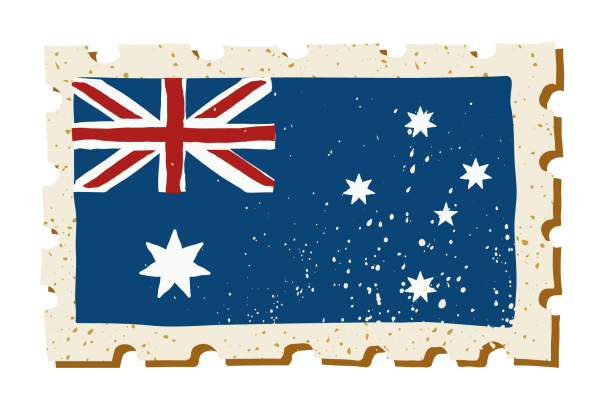The rising prevalence of digital payments and e-commerce in Egypt offers a lucrative opportunity for merchants seeking to establish and enhance their online presence. With a sizable and youthful population, there is a robust demand for online shopping, facilitated by the convenience of mobile money platforms. Nevertheless, entering the Egyptian market poses challenges, notably the relatively low internet penetration rate, emphasizing the need for mobile optimization to reach a broader audience. Additionally, robust cybersecurity measures are imperative to counter the escalating risk of cybercrime accompanying the surge in digital payments. Merchants are urged to invest in secure payment gateways and enforce stringent security protocols to safeguard customer data and thwart fraud. Despite these hurdles, the growth potential in Egypt’s e-commerce sector remains substantial. As internet access expands and digital payment adoption rises, merchants can capitalize on this momentum by adapting to mobile-first strategies, understanding the local market, and prioritizing cybersecurity to ensure success in this burgeoning market.
Popular offline payment methods in Egypt
Cash
Bank Transfers
Cheques
Mobile Wallets
Debit Cards
Fawry
List of payment methods in Egypt
Meeza, launched by the Egyptian government in 2017, Meeza has become a popular payment method in Egypt, offering a mobile wallet service enabling users to conduct various financial transactions through their smartphones. Supported by major mobile network operators like Vodafone, Orange, and Etisalat, Meeza allows users to link their mobile numbers to their accounts for payments at retail stores, restaurants, and online platforms. Users download the Meeza app, register, and load funds through bank transfers or cash deposits at authorized agents. Beyond basic transactions, Meeza facilitates bill payments, money transfers, and cash withdrawals, promoting financial inclusion by extending digital financial services to a broader population. Its widespread acceptance by merchants and its role in reducing reliance on physical cash contribute to Meeza’s popularity as a secure and convenient payment solution in Egypt.
Easycash is a prevalent mobile payment service in Egypt, enabling users to conduct transactions and money transfers through their smartphones. The process involves downloading the Easycash app, creating an account, and linking a bank account or credit card for fund transfer. Users can make payments by scanning QR codes or entering the merchant’s phone number. Easycash facilitates various transactions, including bill payments, online shopping, and peer-to-peer transfers, offering a secure and convenient alternative to cash transactions. The service’s popularity is attributed to its widespread acceptance among merchants, its loyalty programs rewarding users with points for transactions, which can be redeemed for discounts or freebies, and its overall ease of use, making it a favored choice for managing finances via mobile devices in Egypt.
Fawry, established in 2008, has emerged as a leading digital payment method in Egypt, offering users a secure and convenient way to make payments for a diverse range of services and products. Operating through online, mobile, and physical payment points, Fawry allows users to pay bills, top up mobile credit, transfer money, purchase tickets, and conduct online transactions. To utilize Fawry, users create an account, linking it to their bank account or credit card, and can then make instant payments through the app or website. Fawry’s extensive network of partnerships with businesses and service providers ensures broad service coverage, encompassing utility companies, telecom operators, government agencies, and e-commerce platforms. Notably, Fawry’s accessibility is enhanced by its 100,000 payment points located in retail stores, pharmacies, post offices, and banks throughout Egypt, contributing to its transformative impact on the country’s payment landscape and its sustained popularity among businesses and individuals alike.
Aman, launched in 2019 in Egypt as a collaboration between the National Bank of Egypt (NBE) and Telecom Egypt, is a mobile payment service facilitating various financial transactions through smartphones. Users can download the Aman app, register, and link their bank accounts or credit cards to make payments, transfer money, and settle bills. Cash deposits are also possible at authorized Aman agents. The service supports payments through QR codes or phone numbers and permits fund transfers and cash withdrawals. Aman enjoys widespread acceptance among merchants, including supermarkets, restaurants, cafes, and online stores, and is integrated with government services for utility and tax payments. Offering a secure and cashless alternative, Aman incentivizes users with discounts and cashback rewards, contributing to its popularity in Egypt and fostering financial inclusion by extending digital financial services to a broad demographic.
InstaPay, a widely used payment method in Egypt, enables users to execute instant transactions via their mobile phones. By downloading the InstaPay app and linking their bank accounts or credit cards, users can fund their InstaPay wallet and make various payments, such as bill settlements and online purchases, securely. Transactions are conducted by scanning QR codes or entering the recipient’s phone number, with the deducted amount instantly transferred from the user’s wallet to the recipient’s InstaPay account. The system’s versatility extends to utility bill payments, mobile phone credit top-ups, and money transfers to friends and family. Notably, InstaPay enhances safety and convenience by eliminating the need for cash transactions, providing users with detailed transaction histories and easy expense tracking. Widely accepted by a growing number of merchants in Egypt, InstaPay is poised for continued popularity and adoption.
Sympl is a mobile payment platform operating in Egypt, enabling users to make convenient and secure payments through their smartphones. The app, available on the App Store and Google Play Store, requires users to create an account and link their bank account or credit card to add funds. Payments can be made by scanning QR codes or entering the merchant’s phone number, with the amount deducted from the user’s Sympl balance or linked financial accounts. Sympl serves as a versatile payment method for various services such as utility bills, mobile top-ups, online shopping, transportation, and person-to-person transfers among Sympl users. The platform eliminates the need for cash, offering a digital wallet accessible at any time and location, enhancing the overall efficiency and accessibility of payment transactions in Egypt.
ValU is a digital wallet and payment service available in Egypt, provided by the Commercial International Bank (CIB) in collaboration with the Egyptian government. It enables users to make both online and offline payments through their mobile phones for various purposes, including bill payments, online shopping, and in-store purchases. Users can link their ValU account to their bank account or credit card, facilitating easy funding for transactions. The process involves downloading the ValU app, creating an account, and adding funds through methods like bank transfers or credit card payments. ValU emphasizes security with features such as biometric authentication and transaction alerts, while also allowing users to monitor their spending and access transaction history within the app. Overall, ValU offers a secure and convenient payment solution, enhancing accessibility for individuals in Egypt to conduct transactions swiftly and securely using their mobile devices.
Khazna, established in Egypt in 2019 as a collaborative effort between the National Bank of Egypt and Telecom Egypt, is a mobile payment service designed to offer a secure and convenient payment solution for individuals and businesses. Users can utilize the Khazna mobile app by registering and linking their bank accounts or credit cards, enabling them to make various transactions, including bill payments, online shopping, money transfers, and in-store purchases, through QR code scans or entering the merchant’s phone number. Khazna’s strength lies in its extensive acceptance network, featuring partnerships with numerous merchants across Egypt, spanning supermarkets, restaurants, cafes, and online retailers. Beyond convenience, the service prioritizes security, incorporating features like transaction notifications and the option to lock or unlock the app with a PIN or fingerprint. With these attributes, Khazna emerges as a compelling alternative to traditional payment methods, ensuring both ease of use and safeguarding users’ financial information.
Mobile Network Transfer (MNT) is gaining traction as a popular payment method in Egypt, offering users a convenient and secure way to transfer money through their mobile phones. Its accessibility is a key advantage, as nearly everyone in the country owns a mobile phone, allowing for widespread adoption. MNT accommodates both banked and unbanked individuals, circumventing the need for a traditional bank account. Transactions, facilitated by mobile network operators like Vodafone, Orange, and Etisalat, enable users to transfer funds or make payments swiftly and efficiently, eliminating the reliance on cash transactions. Notably, the speed of MNT transactions is advantageous for businesses handling large transaction volumes. The method also prioritizes security, incorporating PIN or biometric authentication, encrypted transactions, and monitoring by mobile network operators to prevent fraud. As digital payments gain momentum, MNT is anticipated to continue growing in popularity in Egypt, fueled by its accessibility, speed, and robust security features.
Halan is a popular digital payment method in Egypt, offering users a convenient and secure way to make cashless transactions through their mobile phones. It functions as a digital wallet that can be utilized for various services such as transportation, food delivery, and online shopping. Users can download the Halan app, create an account, and link their bank account or credit card to fund their digital wallet. Payments are made by scanning QR codes or entering the merchant’s phone number, with the amount deducted from the user’s wallet balance. A confirmation message is sent to both the user and the merchant upon successful transactions. Additionally, Halan features “Halan Pay,” enabling instant money transfers between users, facilitating bill splitting and transactions with friends and family. Overall, Halan plays a significant role in reducing reliance on physical cash and promoting financial inclusion in Egypt.
Shahry, a mobile payment service in Egypt offered by the National Bank of Egypt (NBE), facilitates transactions through users’ mobile phones. Open to both NBE customers and non-customers, it requires the download of the Shahry mobile app for account registration. Users can link their bank accounts or credit cards to the app, deposit cash at NBE branches, or use alternative methods like Fawry or Vodafone Cash to add funds to their Shahry wallet. The service supports various payments, including bills, online purchases, and person-to-person transfers, and enables cash withdrawals from ATMs without a physical debit card. Shahry stands out for its secure and convenient payment process, eliminating the need for physical currency or cards, and offers additional features like transaction history, balance inquiry, and notifications for enhanced user convenience. Overall, Shahry is a widely embraced mobile payment method in Egypt, providing a secure and user-friendly means for conducting transactions via mobile phones.
MyFawry is a widely embraced payment method in Egypt, enabling users to make online and offline payments for diverse services and products. Easily accessible through the MyFawry website or mobile app, users can link their bank accounts or credit cards to add funds, facilitating seamless transactions. Accepted by a broad spectrum of merchants, service providers, and government entities, MyFawry covers utility bills, mobile top-ups, internet subscriptions, transportation fees, online shopping, and government payments, including taxes and fines. The platform stands out for its convenience, allowing users to make payments anytime, anywhere, while also offering the advantage of secure transactions. Utilizing encryption technology and employing a one-time password (OTP) sent to registered mobile numbers for each transaction, MyFawry ensures the protection of users’ personal and financial information. In summary, MyFawry is a widely accepted and secure payment solution in Egypt, providing users with the convenience of flexible transactions and robust security features.
The CIB Smart Wallet, offered by the Commercial International Bank (CIB) in Egypt, is a digital financial solution that allows users to efficiently manage their finances and conduct transactions through their mobile devices. This payment method brings unparalleled convenience by enabling users to make payments anytime and anywhere, eliminating the need for physical cash or cards. Notably, the CIB Smart Wallet prioritizes security through PIN or biometric authentication, mitigating the risks of fraud or unauthorized access. Its widespread acceptance at various merchants, including retail stores, restaurants, online platforms, and utility bill payments, makes it a versatile option for diverse transactions. The wallet further enhances the user experience by offering exclusive rewards and discounts, such as cashback, loyalty points, and special promotions with partner merchants. Additionally, users can leverage the app’s financial management tools to monitor spending, review transaction history, and establish budgeting goals. The CIB Smart Wallet also facilitates instant money transfers among users, providing a comprehensive and secure digital payment solution for individuals in Egypt.
Qatar National Bank (QNB), a major financial institution in the Middle East, extends its services to Egypt, offering a comprehensive range of banking services, particularly focusing on various payment methods. QNB customers in Egypt can conduct transactions through their accounts using online banking, mobile banking, and ATMs. The bank facilitates purchases at merchants accepting QNB cards, enables money transfers to individuals or businesses, and allows customers to link their accounts to digital wallets like Apple Pay or Samsung Pay for secure mobile payments. Going beyond conventional methods, QNB introduces innovative solutions like QR code payments, empowering customers to generate QR codes through the mobile app and seamlessly make payments at participating merchants. Overall, QNB provides a convenient and secure payment ecosystem, enhancing the efficiency of transactions for its Egyptian clientele.
ALAHLI E-Wallet, provided by the National Bank of Egypt (NBE), is a digital payment solution enabling users to conduct online and mobile transactions through their smartphones. Users must download the ALAHLI E-Wallet app, available on the App Store or Google Play Store, and register an account, linking their bank accounts or credit cards. This e-wallet facilitates payments at diverse merchants, covering online retailers, restaurants, and utility bills. Additionally, users can transfer funds to other ALAHLI E-Wallet users. Making a payment involves selecting the ALAHLI E-Wallet option at the merchant’s checkout or scanning a provided QR code, with the amount deducted from the user’s ALAHLI E-Wallet account. Offering a secure and convenient alternative to cash or physical cards, ALAHLI E-Wallet provides real-time transaction notifications, transaction history tracking, and account management features. Its popularity in Egypt stems from its user-friendly interface, widespread merchant acceptance, and the trust associated with being backed by the National Bank of Egypt.
Etisalat Cash, a mobile wallet service from the prominent telecommunications company Etisalat in Egypt, facilitates seamless payments and money transfers via mobile phones. To utilize this service, individuals must register for an Etisalat Cash account at an authorized location, presenting required identification documents. Following registration, users can load funds into their accounts through various channels such as Etisalat stores, authorized agents, or bank transfers. The loaded amount can be used for payments at participating merchants or transferred to other Etisalat Cash users. Payments are made by providing the mobile number and PIN at the merchant’s point of sale, deducting the amount from the user’s Etisalat Cash balance. Accepted for bill payments, online shopping, and in-store purchases, Etisalat Cash offers a convenient and secure alternative to carrying cash or physical cards, providing users in Egypt with a streamlined payment experience across a diverse range of merchants.



